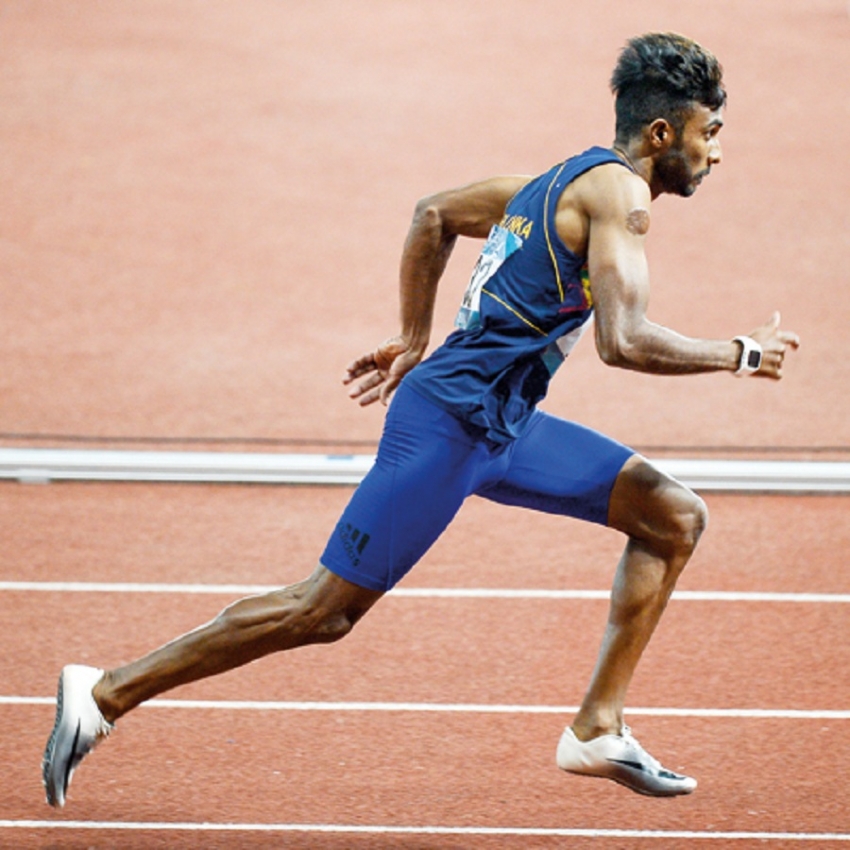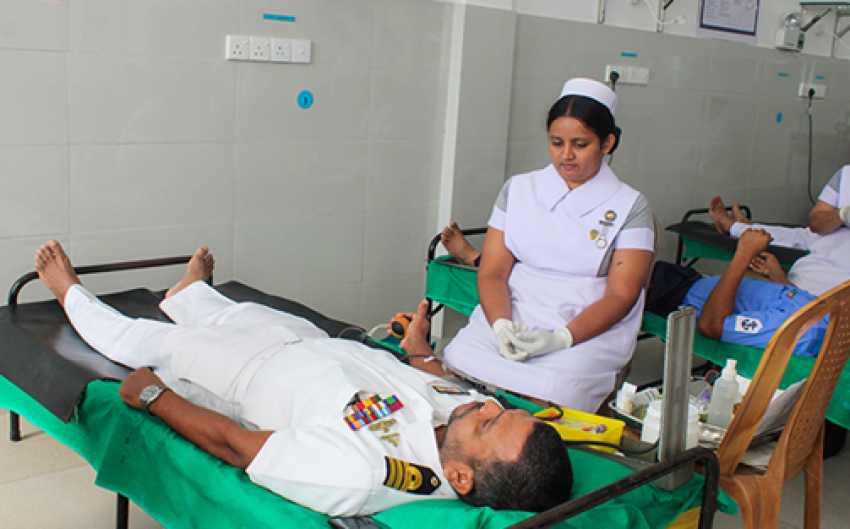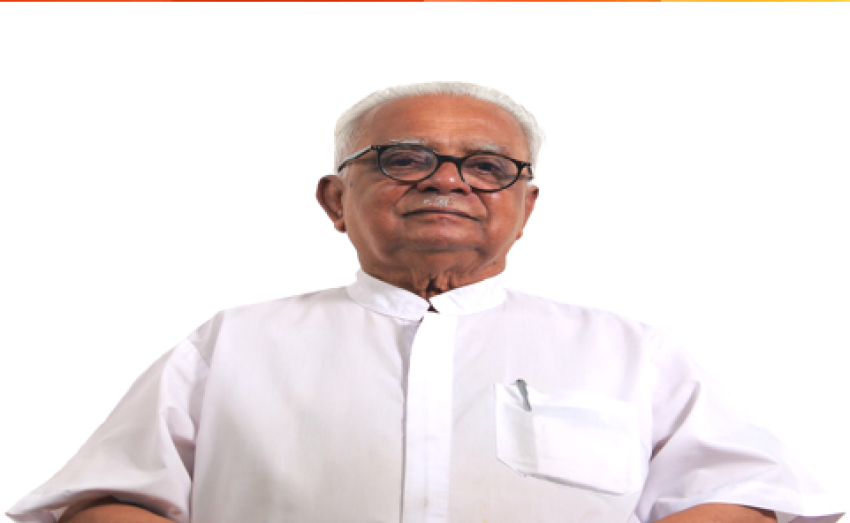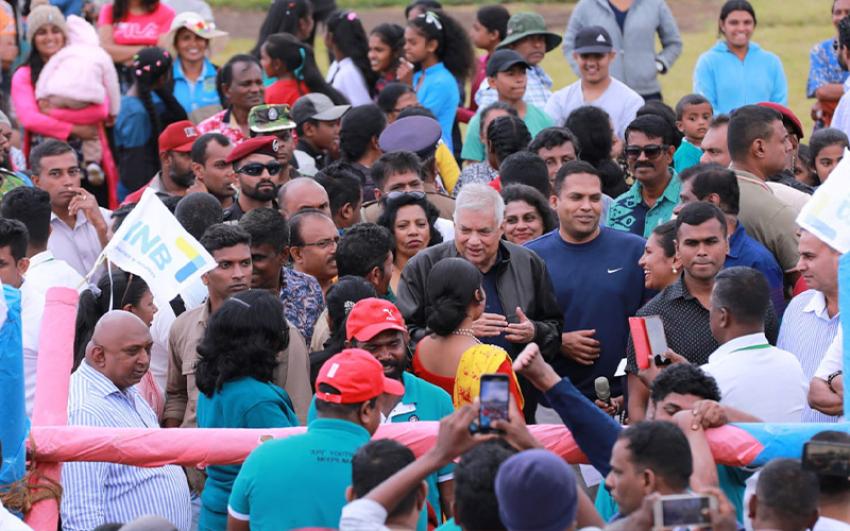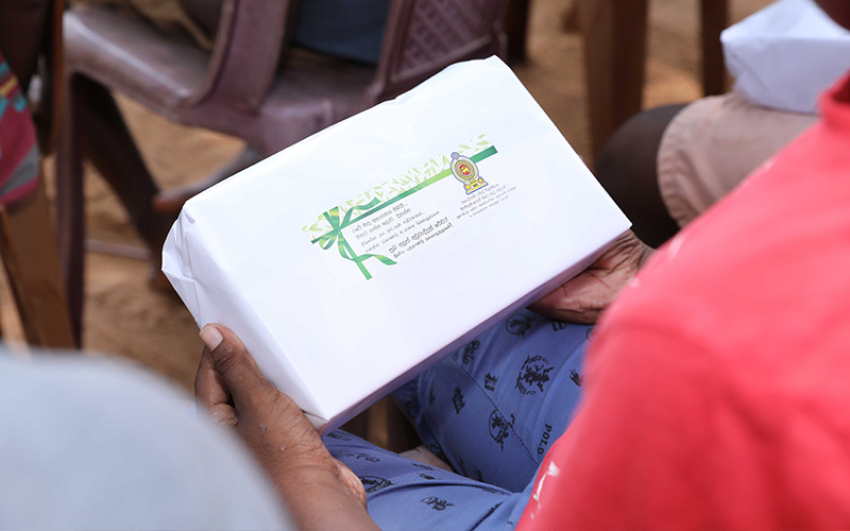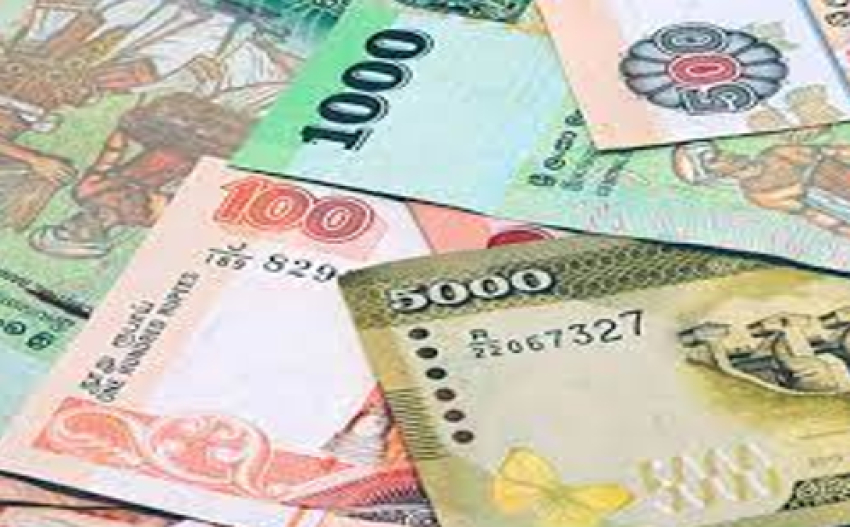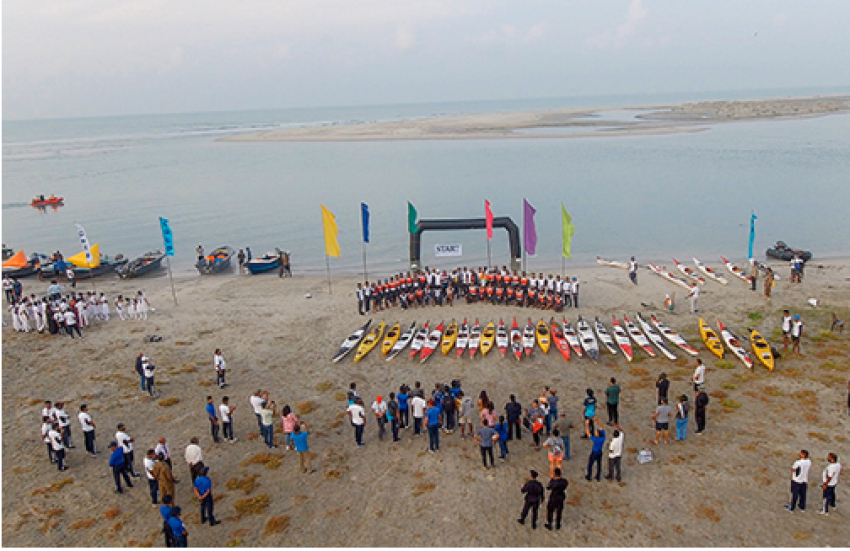Promising 400m sprinter Kalinga Kumarage has been been exonerated of all charges after the Sri Lanka Anti-Doping Agency (SLADA) and World Anti-Doping Agency (WADA) failed to establish that there were banned substances in his body or that he has violated anti-doping rules.
Kumarage, who tested positive for the banned substance dehydrochloomethyltestonsterone, an anabolic steroid, at the 55th Army Meet last year, was cleared after a disciplinary hearing this week by SLADA’s disciplinary panel.
Kumarage’s A sample resulted in an adverse finding on December 11 last year, two months after the sample was collected. The B sample also confirmed the A sample findings in January 25 this year.
However, Kumarage, backed by his legal team headed by President’s Counsel Dinal Philips, successfully established that SLADA and WADA failed to satisfy that there were banned substances in the athlete’s body. He maintained that the quantity of banned substance allegedly found in his body was less then 2ng/ml and, therefore, his suspension was ridiculous and unacceptable. He alsos aid that SLADA suppressed the fact that NDTL in Delhi was under scrutiny over non-compliance of the International Standard for Laboratories by WADA.
WADA suspended the accreditation of NDTL for six months in August this year for non-conformity with the International Standard for Laboratories.
The disciplinary committee rejected the first submission but has upheld the second, allowing the athlete to resume his career.
“There was no other evidence except the test results and/or reports NDTL of samples ‘A’ and ‘B’ of the athlete’s urine, to suggest or prove or establish that there was banned substance in athlete’s body and/or the athlete has violated doping rules,” the 18-page report prepared by the three-member committee headed by President Counsel Uditha Egalahewa reads. Others in the committee are Prof. Rohini Fernandopulle and Dr. Nimal Gunaratne.
“Therefore, in these circumstances, and for the aforesaid reasons, this panel holds that SLADA has not established to the standard of proof stipulated in Article 3.1 of the WADA Code, that there were banned substances in the athlete’s body and/ or the athlete is in violation of any anti-doping rules,” the report says, reflecting the unanimous view of the three-member panel.
The Chairman of SLADA Prof. Arjuna de Silva however said they will appeal against the decision. “We will definitely go to the Appeals Committee against the decision,” Prof. de Silva said. “We will be sending the disciplinary committee decision to WADA who will then study the report and see whether there are satisfactory grounds to exonerate the athlete. If they are not satisfied then, they will file action with CAS (Court of Arbitration for Sports).”
A doping rule violation warrants a minimum four-year ban according to WADA rules as it’s the personal duty and responsibility of each athlete to ensure no prohibited substance enters his or her body. Earlier this month, the same committee exonerated teenage sprinter Chelsea Melani Bendarage who tested positive for a banned stimulant in February this year on a technicality.
Chelsea, who tested positive for the stimulants Oxandrolone and Epioxandrolone (metabolite of Xandrolone) at the National Sports Festival last year, was cleared after a disciplinary hearing as she successfully established that they bore no fault or negligence in consuming the Protein Supplement, Nitro Tech, which caused the adverse analytical finding.

